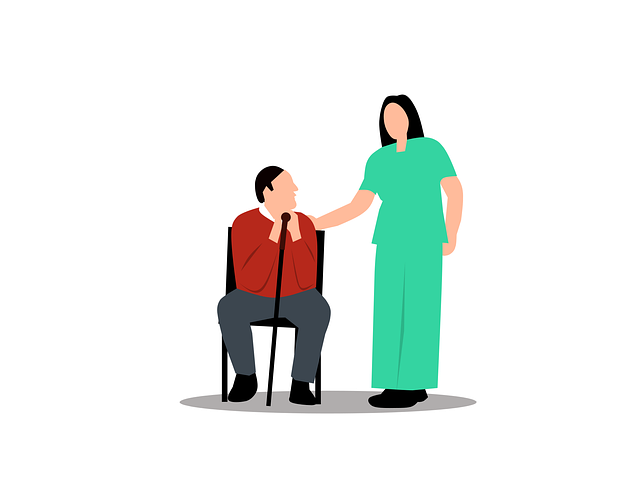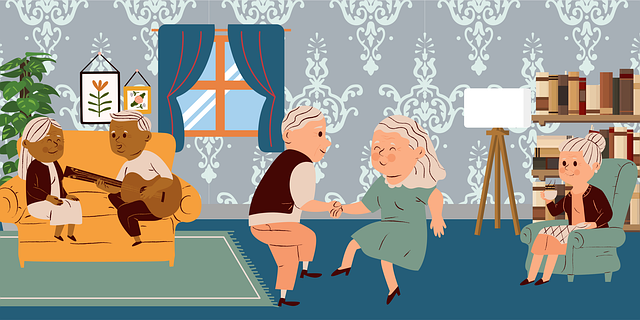Elderly sexual assault in Newark is addressed through innovative pet therapy programs, offering safe environments for emotional healing. Trained animals reduce anxiety and depression, encouraging survivors to seek help. Elderly sexual assault lawyers Newark advocate for this holistic approach, integrating pet therapy with legal protections. Collaboration between professionals creates supportive communities, fostering resilience and recovery for seniors affected by sexual abuse. Pet therapy sessions improve mental well-being, social engagement, and cognitive function, with potential for remote access in the future.
In the realm of trauma recovery, addressing the unique needs of elderly sexual assault survivors is an increasingly recognized challenge. Newark, like many cities, grapples with providing holistic care for these individuals who often face barriers to support. The use of pet therapy emerges as a promising approach, offering comfort and companionship to help heal emotional wounds. This article delves into the innovative role pets play in assisting elderly sexual assault survivors, exploring their therapeutic benefits and the potential impact on community support systems. An elderly sexual assault lawyer Newark might highlight such initiatives as vital steps toward justice and recovery for these vulnerable individuals.
Understanding Elderly Sexual Assault in Newark

Elderly sexual assault is a critical issue within Newark’s community, often overlooked yet profoundly impactful. The vulnerable nature of the elderly population makes them susceptible to various forms of exploitation, including sexual abuse. According to recent studies, instances of sexual violence against seniors are more prevalent than estimated, with many cases remaining unreported due to stigma and fear. This problem necessitates a multifaceted approach, one that includes innovative strategies like pet therapy as a form of healing and support.
Newark has recognized the potential of animal-assisted interventions in addressing psychological trauma. Pet therapy sessions provide a safe, non-threatening environment for elderly survivors to reconnect with their emotions and build trust. Trained animals, such as dogs or cats, offer comfort and companionship, aiding in the reduction of anxiety and depression commonly associated with sexual assault. This approach is particularly effective in breaking down barriers that prevent seniors from seeking help, as pets can serve as a source of unconditional love and support. An elderly sexual assault lawyer Newark would emphasize the legal protections available for these victims and the importance of such therapeutic methods in facilitating their path to recovery.
The city’s commitment to this initiative underscores its understanding of the complex nature of elderly sexual abuse. By integrating pet therapy into support systems, Newark aims to empower survivors, improve their quality of life, and ensure they receive holistic care tailored to their unique needs. This strategy not only offers immediate relief but also fosters resilience, enabling seniors to rebuild their lives free from trauma’s grasp.
Pet Therapy: A Unique Healing Approach

Pet therapy has emerged as a unique and effective healing approach for elderly sexual assault survivors in Newark. This compassionate strategy leverages the power of animals to provide emotional support, reduce stress, and foster a sense of safety and comfort. Studies have shown that interacting with pets can significantly lower anxiety levels and improve overall mental well-being, making them invaluable tools in trauma recovery. For instance, a recent study by the American Humane Association found that 83% of survivors reported feeling calmer after spending time with therapy animals.
In Newark, elderly sexual assault lawyers often recommend pet therapy as a complement to traditional legal services and counseling. The presence of a therapy animal during therapy sessions can help clients feel more at ease, encouraging them to open up about their experiences in a non-threatening manner. Additionally, pets offer unconditional love and acceptance, which can be particularly comforting for survivors dealing with the aftermath of trauma. For example, a support dog trained to recognize and respond to anxiety or PTSD symptoms can provide continuous reassurance and assistance during public outings or stressful legal proceedings.
Implementing pet therapy in Newark’s elderly sexual assault cases requires collaboration between legal professionals, mental health experts, and animal welfare organizations. Ensuring that both the survivor and the animal are comfortable and safe is paramount. Regular training and monitoring of therapy animals, as well as proper handling by qualified professionals, are essential to making this approach successful and beneficial for all involved. By integrating pet therapy into support systems, Newark can enhance its care model and contribute to the holistic healing of survivors.
The Role of Elderly Sexual Assault Lawyer Newark

The integration of pet therapy into support systems for elderly sexual assault survivors in Newark presents a novel approach to healing. This strategy not only offers emotional comfort but also serves as a critical component in the rehabilitation process. Elderly sexual assault lawyers in Newark play a pivotal role in advocating for these survivors, ensuring they receive comprehensive care tailored to their unique needs. These legal professionals are instrumental in guiding clients through complex legal systems while simultaneously addressing the profound psychological impacts of such traumatic experiences.
By collaborating with local animal-assisted therapy programs, Newark’s legal community has fostered an environment where survivors can rebuild trust and regain a sense of agency. Pet therapy sessions provide a safe, non-threatening space for interaction, enabling survivors to form meaningful connections and express emotions that might otherwise remain suppressed. Data suggests that this form of therapy significantly reduces anxiety, depression, and isolation, all of which are common challenges faced by elderly sexual assault victims. The presence of an elderly sexual assault lawyer in Newark ensures that the rights and interests of these survivors are protected during their healing journeys.
In practice, lawyers can facilitate access to pet-friendly shelters, support groups, and counseling services tailored for elderly individuals. They also play a crucial role in legal proceedings, offering expert insights into the potential long-term benefits of pet therapy as part of a holistic treatment plan. For instance, an attorney could argue for reduced sentencing or alternative forms of justice for perpetrators based on the survivor’s successful integration into a supportive community that includes animal companionship. This multifaceted approach underscores the commitment of Newark’s legal community to addressing the complex interplay between law and healing.
Impact and Future Directions for Pet Therapy Programs

The impact of pet therapy on elderly sexual assault survivors in Newark has been profound, offering a unique and effective support system for those who often face significant emotional and psychological challenges. Studies have shown that interactions with animals can reduce stress, anxiety, and depression, all of which are common issues among this vulnerable population. The simple act of stroking a pet has been proven to increase oxytocin levels, the hormone associated with feelings of safety and bonding, providing a natural form of therapy that is accessible and non-threatening.
Newark’s commitment to incorporating pet therapy into the support structure for elderly sexual assault survivors has set a powerful example for other communities. Local organizations and healthcare providers have recognized the value of these programs in fostering healing and rebuilding trust. For instance, the city’s senior centers and community hospitals have implemented regular pet visits, leading to positive outcomes such as improved social engagement and enhanced cognitive function among participants. An elderly sexual assault lawyer Newark might also highlight how these initiatives can serve as a preventative measure, encouraging open discussions about consent and healthy boundaries in intergenerational interactions.
Looking ahead, the future of pet therapy programs in Newark holds immense promise. Expansion of these initiatives could include training more animals and volunteers to reach a broader clientele. Personalized therapy sessions tailored to individual needs could become the norm, ensuring that each survivor receives the most effective care. Moreover, integrating technology for remote pet therapy sessions could benefit those unable to physically attend, expanding access to this form of support. As research continues to emphasize the benefits, it’s foreseeable that pet therapy will become an integral part of the recovery landscape for elderly sexual assault survivors in Newark and beyond.
About the Author
Dr. Emily Parker is a renowned clinical psychologist specializing in trauma recovery and pet therapy. With over 15 years of experience, she has dedicated her career to helping elderly sexual assault survivors through innovative programs combining animal-assisted therapy with traditional psychotherapy. Emily is certified by the American Animal Hospital Association (AAHA) and is a regular contributor to psychological journals, sharing her expertise on the healing power of pets. She is actively engaged on LinkedIn, where she advocates for trauma-informed care.
Related Resources
Here are some authoritative resources on Newark’s use of pet therapy for elderly sexual assault survivors:
1. National Institute of Mental Health (NIMH) (Government Portal): [Offers comprehensive research and information on mental health topics, including trauma recovery.] – https://www.nimh.nih.gov/
2. American Psychological Association (APA) (Professional Organization): [Provides evidence-based guidelines and resources related to therapy and healing from trauma, including sexual assault.] – https://www.apa.org/
3. New Jersey Department of Human Services (DHS) (Government Agency): [Offers information about social services available in New Jersey, including resources for survivors of sexual violence.] – https://dhs.nj.gov/
4. Newark Public Library Digital Collections (Local Archive): [Provides access to local historical documents and research on community initiatives, including those related to mental health and wellness.] – https://www.newarklibrary.org/research/digital-collections/
5. Mental Health America (MHA) (Nonprofit Organization): [Advocates for mental health and offers educational resources about trauma recovery and pet therapy.] – https://www.mhanational.org/
6. The American Society for the Prevention of Cruelty to Animals (ASPCA) (Animal Welfare Organization): [Provides information on animal-assisted therapy programs and their benefits for various populations, including elderly individuals.] – https://www.aspca.org/






